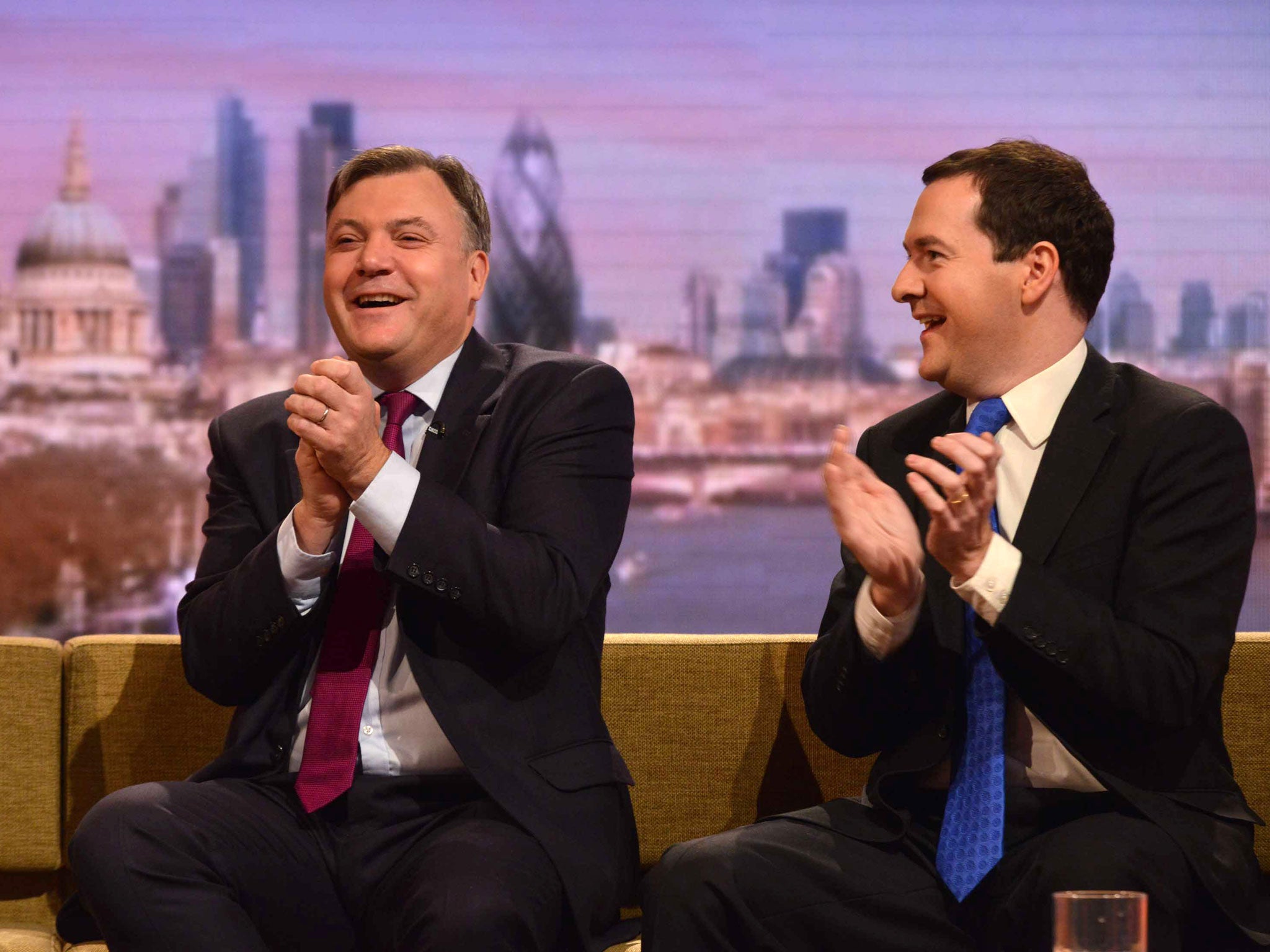Autumn Statement analysis: The Tories could fight an election tomorrow. Not so, Labour...
The Labour leadership needs to add detail to its alternative journey


George Osborne is the first Chancellor in history to have briefed or announced in advance all the policies in his Autumn Statement.
He did so to create the space for an argument that he hopes will lead to election victory in 2015.
We also knew what the argument would be. Osborne wrote an article at the start of the year in which he revealed his intention to lift President Obama’s election-winning message: “We are on the right road but there is still a long way to go”.
Sure enough, he opened his statement yesterday with the Obama metaphor before blaming the previous government for the economic emergency that he inherited – another part of his story he will narrate repeatedly between now and the election.
The traps for his political opponents, the third part of Mr Osborne’s strategy, were also trailed in advance during his party conference speech in October.
Yesterday he made clear again that spending cuts would continue after the election for at least another three years. Will Labour support this proposition? If not, Osborne will claim that Labour plans a tax bombshell that will hit hard-working families. Even if Labour more or less backs spending cuts for years to come he will still make the claim.
In another moment of curious candour, David Cameron told journalists recently that he planned to adopt themes from the 1992 election, the last time the Conservatives won an overall majority. It is so clear how they plan to fight the election they might as well hold it next year.
The wearying distance between now and 2015 in this overlong five-year parliament is another reason why there were few meaty announcements from Osborne. He has one more Autumn Statement and two more Budgets to go, and there will be pre-election goodies in some of those. Cameron and Osborne might be planning to revisit the 1992 election but their economic strategy has closer echoes with the 1980s when medicine was followed by more populist policies as the elections moved into view.
Whether it will work this time is doubtful. The fragile recovery is a repeat of what has happened before so many times, one built precariously on a property boom in the south of England. Osborne’s narrative is also based on a re-writing of recent history. In reality when the Chancellor came to power the economy was growing. Soon after his first austerity package the UK was back in recession. The Chancellor’s plan to wipe out the structural deficit in this parliament was scrapped within two years. Only now is the economy growing again from a low base.
In such a context I wonder whether voters will have the appetite for more real-terms spending cuts for years in the future. Most are in favour of cuts in theory but there will come a point as the NHS creaks and the UK falls even further behind equivalent countries in housing provision and infrastructure that they will cry out for more investment.
Still, Osborne has an accessible story. He is on his road and he is planning to complete the journey after the two Eds took us to the edge of a cliff. Don’t choose to go on another journey with those two.
The Labour leadership needs to add detail to its alternative journey. What does it see as the role for the state compared with the much smaller state envisaged by Cameron and Osborne? Why will it follow Osborne’s spending limits at first and what will it do later in the next parliament? How will it re-balance the economy so a recovery is possible that is based on more than debt and soaring house prices?
Its astute focus on the cost of living can only be part of a response to Osborne. However contentious the ammunition, Osborne could fight the election campaign tomorrow. Labour still has some big decisions to make.
Join our commenting forum
Join thought-provoking conversations, follow other Independent readers and see their replies
0Comments